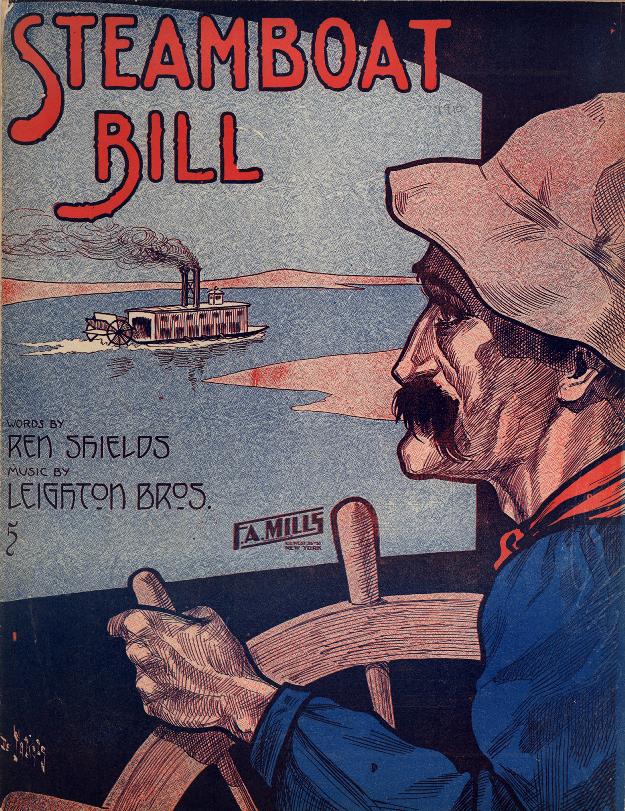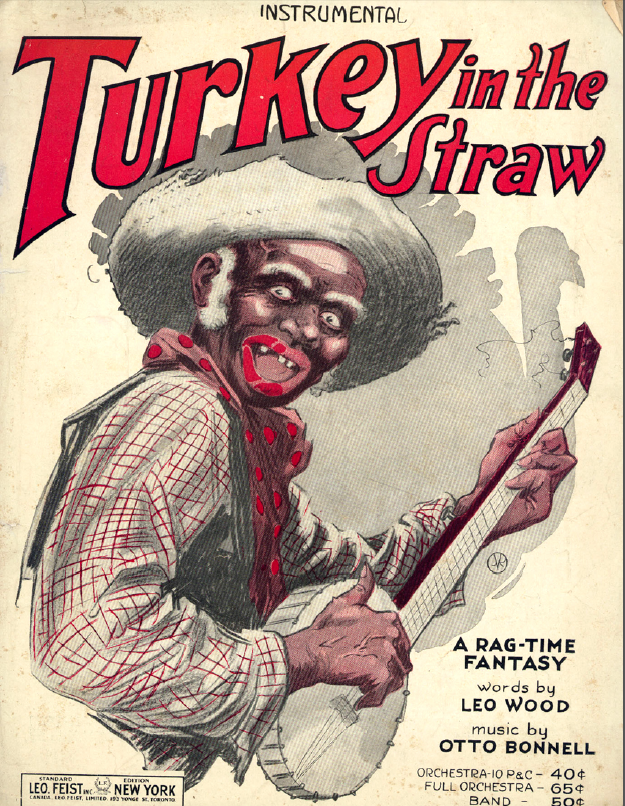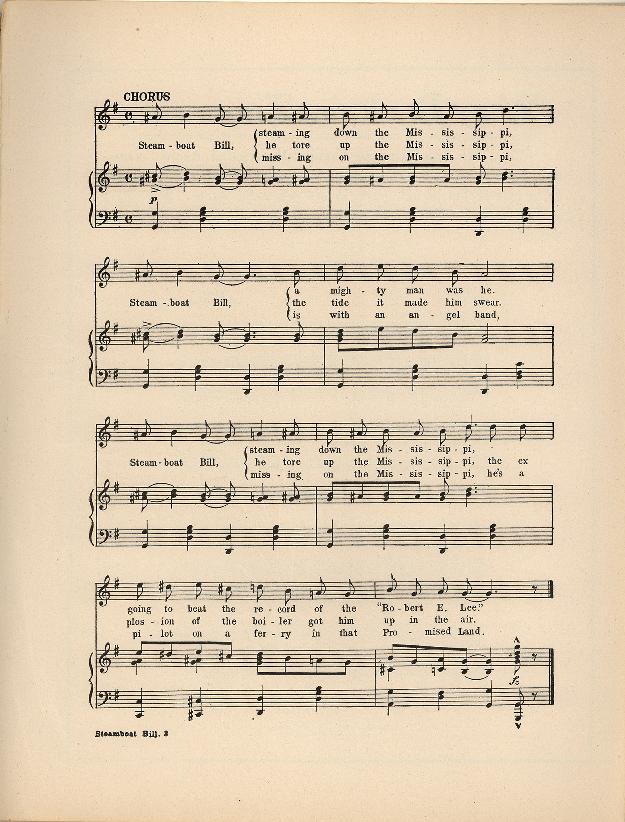If you were to open the VHS vaults in many homes you would find many unique tapes. There may be some home videos, possibly last year’s Christmas special that you recorded, but almost certainly there would be a Disney film or two (or 17). The Walt Disney Company, originally known as The Disney Brothers Studio, was founded in 1923. Since its establishment, Disney has produced dozens of films that have become staples in the entertainment industry and, as Walt himself always said, “it was all started by a mouse.”
Mickey Mouse is arguably the most beloved Disney character and he got his debut performance in November of 1928 in the animated short Steamboat Willie. Steamboat Willie marks a turning point in the world of cartoon entertainment, as it was the first cartoon to use synchronized sound. This technological advance opened the door for music of the era to take a ride on a new venue and broaden its reach as a popular song of the day.
If you have not actually seen Steamboat Willie, I invite you to do so! It is truly a piece of Americana.
There are two musical selections that can be heard in Steamboat Willie: “Steamboat Bill” and “Turkey in the Straw.”

“Steamboat Bill” cover: Obtained from Duke University, Digital Collections

“Turkey in the Straw” cover: Obtained from University of California, Archive of Popular American Music

Melody from “Steamboat Bill”: Obtained from Duke University, Digital Collections
“Steamboat Bill” is the first song we hear in the animated short. Originally written by the Leighton Brothers in 1910, “Steamboat Bill” gained immense popularity in the 1910s and 1920s to the point that the movie Steamboat Bill Jr. was named after the tune. So where exactly can we hear the tune of “Steamboat Bill” in Steamboat Willie? Undoubtably the most iconic element of the short is Mickey Mouse standing at the wheel and whistling away. That tune is actually the chorus of the popular song, “Steamboat Bill!” If you’re able, whistle the tune and you’ll see it is a perfect match!
So what about “Turkey in the Straw?” Well our first encounter with the piece is actually in its physical form. After landing on the steamboat, Minnie Mouse drops her music which includes the famous “Turkey in the Straw” which is quick consumed by a goat. The goat is converted into a record player of sorts and a minstrel-esque performance begins, complete with a washboard and a set of pots and pans.
What is the importance here. This course pushes us to look beyond the “song and dance” if you will, and search for historical context. Mickey Mouse is a beloved character known to millions around the world who got his start in “minstrelsy”. Is he in “blackface”? Not exactly, but in examining his actions it is pretty clear that he is, in fact, performing in the minstrel tradition. “Turkey in the Straw” is a song historically know for being a part of minstrelsy and the instrumentation and exaggerated movements of his performance reinforce the tradition.


Thanks for digging up the name of the tune that opens Steamboat Willie – now I’m curious to know more about “Steamboat Bill.” Is its syncopation merely incidental, or does it evoke origins in minstrelsy? Is the “Bill” in question a figure made up for the song, or does he have a more extensive history?
I’m also glad you spent some time at the end thinking about the significance of Mickey’s antics, particularly during the “Turkey in the Straw” segment. I wonder whether the first audiences of this cartoon would have recognized that melody and his performance as a call-back to minstrelsy, or whether they (like us) would have already forgotten the 19th-century history of “Turkey in the Straw.” Minstrelsy was still on stage in certain places in the 1930s, so I have a hard time believing that Disney himself didn’t know what he was doing. Do you think this changes our approach to Mickey in 2015, or is it just an interesting piece of historical trivia to file away with so many others?